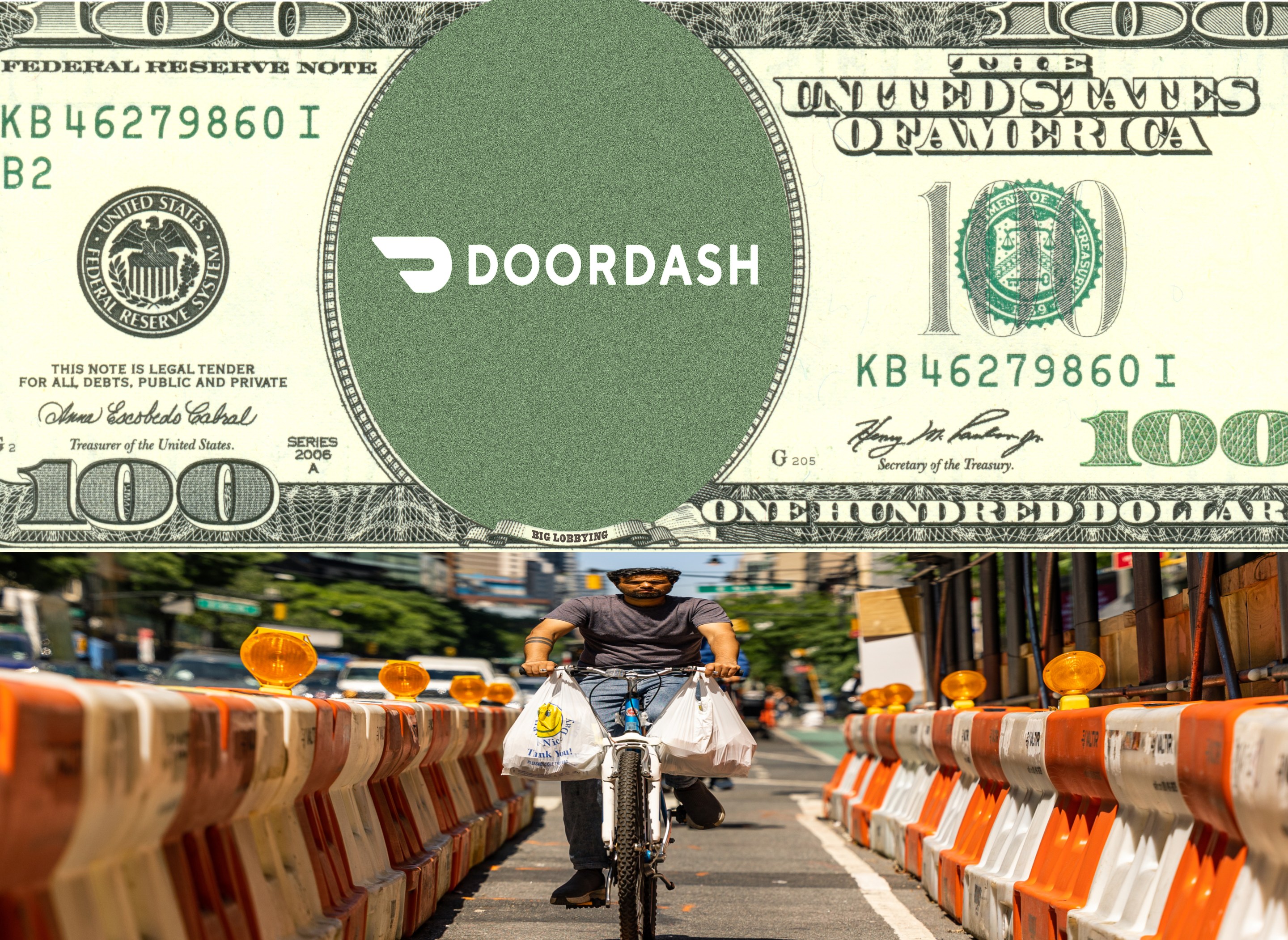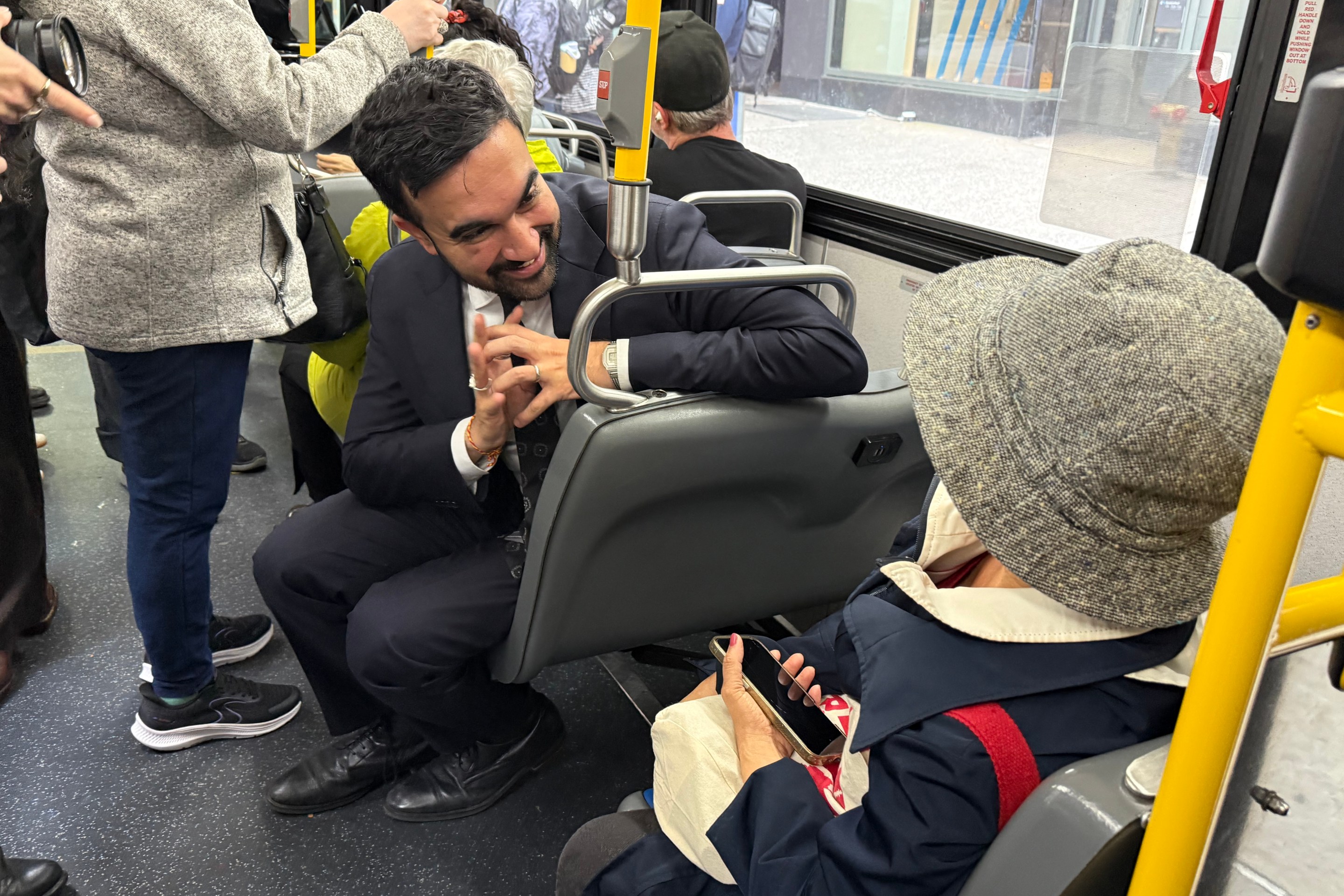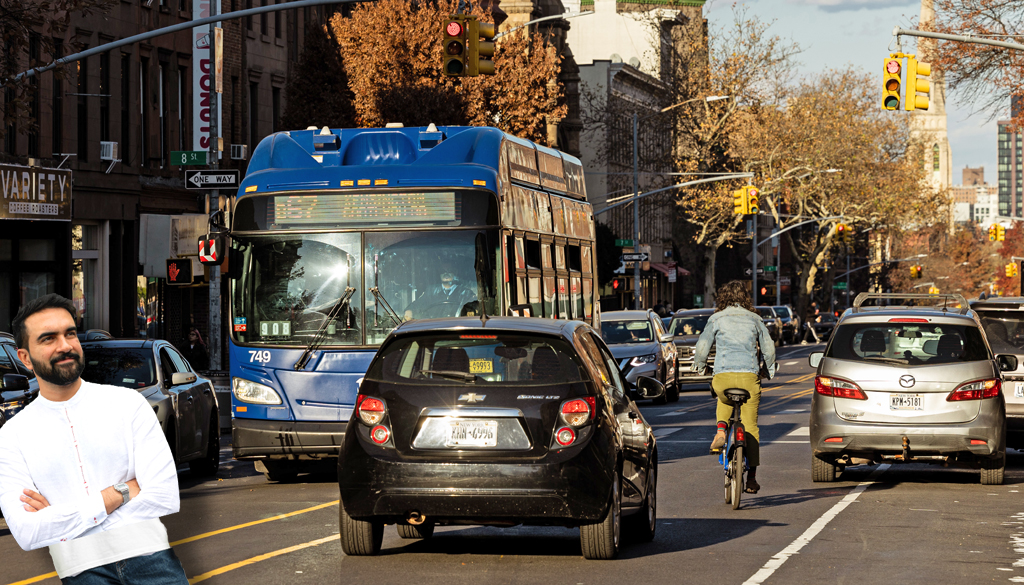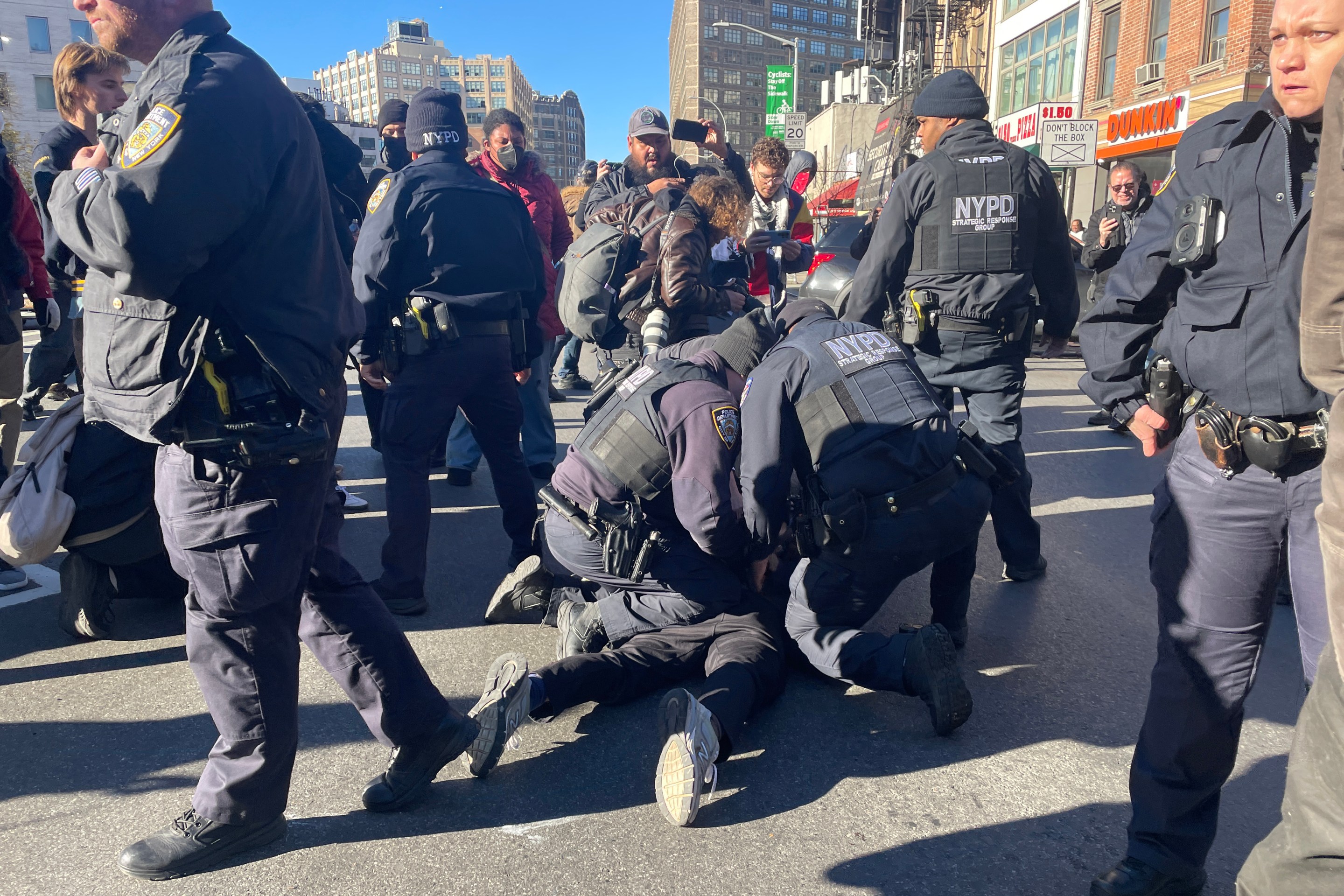
ALBANY — Lawmakers in Albany declined to pass a bill requiring app companies to provide insurance coverage to delivery workers after a lobbying campaign led by DoorDash, which has become increasingly active in the political sphere.
A bill introduced by Assembly Member Robert Carroll (D-Park Slope) would have required food delivery apps to provide $50,000 in coverage for delivery workers, pedestrians, and non-delivery cyclists in the event of a crash. The insurance would have covered “bodily injury or death arising out of or resulting from qualifying accidents involving a delivery person.”
The bill passed the Senate, but died in the Assembly after a furious campaign by DoorDash that included a secret memo distributed to lawmakers (and since obtained by Streetsblog) with several false or misleading claims.

“DoorDash already provides Dashers with occupation accident insurance,” reads the memo from the company's regional head of government relations Kassandra Perez-Desir. While technically true, DoorDash’s own website says that the insurance “does not cover damage to your bike or car,” which would have been covered by the Carroll bill (co-sponsored by Sen. Liz Krueger, Democrat of Manhattan).
In the memo, DoorDash, a tech company with a market cap of around $103 billion, calls the Krueger and Carroll proposal “costly.”
A separate memo to the legislature from Crum & Foster — which identifies itself as working “with DoorDash and other delivery platforms” — claimed the Krueger-Carroll bill “would needlessly impose additional costs on delivery platforms [and] force delivery platforms to reevaluate the insurance coverage provided to workers today, potentially resulting in less overall coverage than workers currently have today.”
Carroll disputes the substance of the memos, though they were effective in the end. He said the goal was simply to “incentivize safety over speed and provide a modicum of recompense to those harmed should crashes occur.”
‘Duplicative’?
DoorDash says its “occ acc” insurance covers “all Dashers regardless of vehicle type … while on a delivery.” That means it covers delivery cyclists.
But it’s unclear if they know it.
Neo, who biked for DoorDash for six years, said he had never heard of the insurance, an indication that it is not widely promoted internally.
And the advocacy group Los Deliveristas Unidos wrote in a report, “App-delivery workers are exposed to risk of severe injuries, which can prevent them from working for several weeks, without health insurance or financial cushion. Forty-nine percent of survey respondents reported having been in an accident or crash while doing a delivery. Of these workers, 75 percent said they paid for the medical care with their own personal funds.”
The secret DoorDash memo also complains of a clause in the Carroll-Kruger bill that would bar the app companies from taking “adverse action” against a delivery worker filing a claim. DoorDash claims that provision would make it harder for the company “to remove individuals not following the rules of the road at a time when cities are calling for greater accountability regarding street safety and the use of e-bikes and scooters.” (It's worth noting: DoorDash’s current insurance does not cover delivery workers who are using multiple apps.)
It’s no coincidence that the memo is dated June 10, 2025, weeks after Mayor Adams and NYPD Commissioner Jessica Tisch launched a crackdown on e-bike riders, including delivery workers, which led to a weakening of pro-cyclist efforts in Albany.
At the same time, former Gov. Andrew Cuomo claimed during his failed mayoral campaign, “There’s virtually no rules and no regulations regarding e-bike use in New York City and too many New Yorkers are getting hurt, and even killed.” Cuomo’s desire to regulate e-bikes, yet not the companies that dispatch them, may explain why DoorDash gave a cool $1 million to a super PAC supporting Cuomo for mayor.
DoorDash and other companies also lobbied against an effort by Mayor Adams to regulate delivery apps companies in his “Department of Sustainable Delivery” proposal, which ended up going nowhere (and did not mention insurance anyway).
This fight is far from over. With Cuomo vanquished, app companies will likely have to deal with a mayor who wants to regulate them. Presumptive Democratic mayoral nominee Zohran Mamdani's regulation and licensing plan goes further than Adams’s: he wants to try to raise the minimum wage to $30 per hour by 2030 and calls deliveristas “Black, brown, and immigrant workers [who] are exploited by the app companies.” He has also called for resources — from the app companies — to support deliveristas.
On the other hand
DoorDash’s secret memo wasn’t all negative; it also urged lawmakers to support a separate insurance bill that covers people hit by a delivery worker — a much smaller subset that eliminates coverage for the workers themselves.
The memo called that bill, from Assembly Member Linda Rosenthal (D-Manhattan) and Sen. Brad Hoylman-Sigal (D-Manhattan), “a better approach [because it maintains] appropriate levels of liability insurance in the case that a worker injures a third-party while engaged in a delivery.”
But according to the NYPD, e-bike riders caused just .04 percent of injuries to pedestrians in the first three months of 2025, so there would ultimately be very few payouts under this insurance proposal. That’s what DoorDash wants, according to Carroll.
“More crashes involve an e-driver getting hit by a car than a pedestrian being hit by an e-driver,” said Carroll. “By mitigating their risk, they have significantly less liability, and less incentive to put in the safety protocols that they claim they want to do.”
Public records show that the app company lobbied Rosenthal beginning in January, though her bill didn’t make it out of either house anyway.
DoorDash declined to comment for this story, saying only that “everything from the DoorDash perspective is covered in that memo.“






